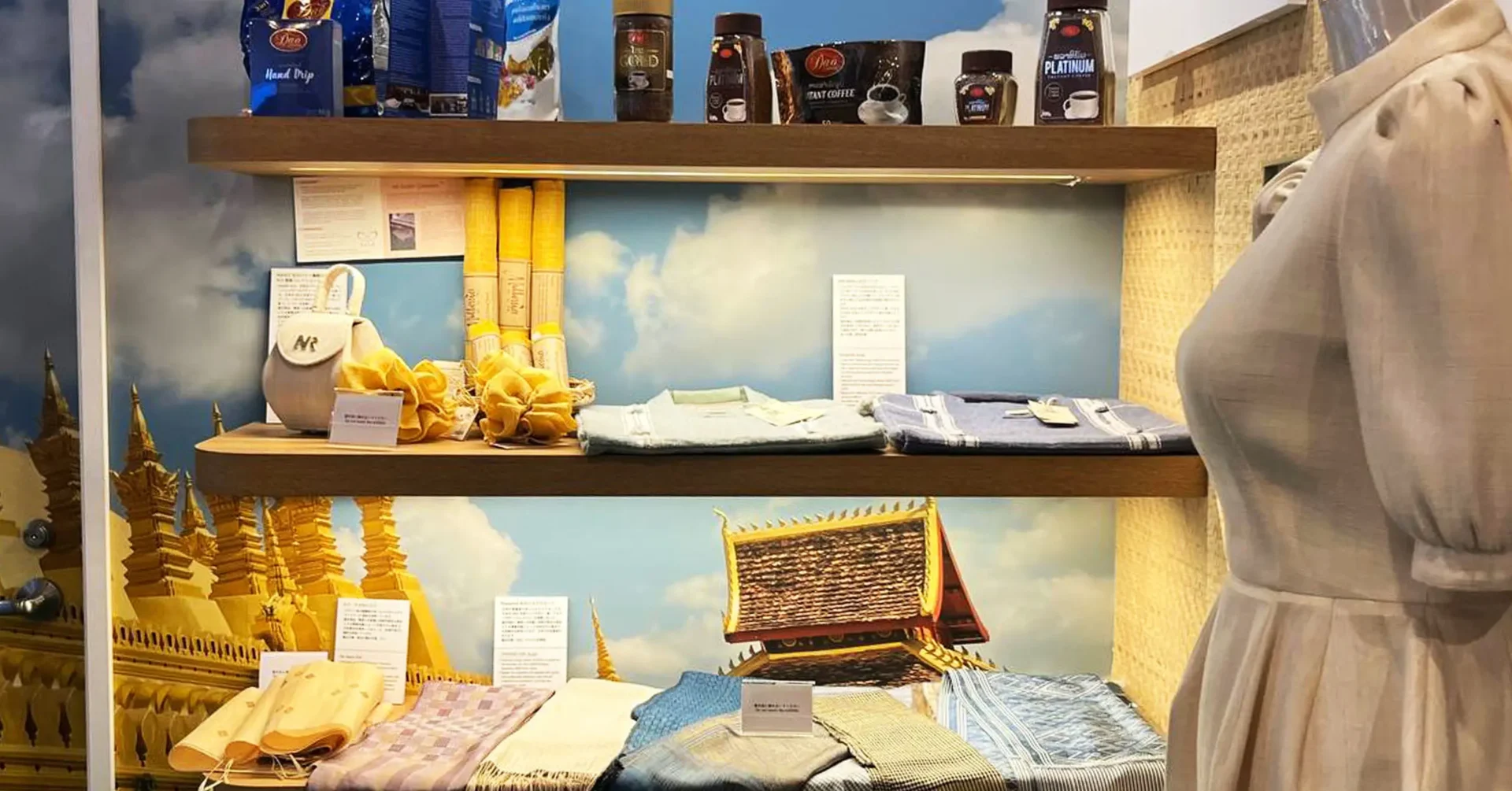Osaka Expo 2025: What PH Can Learn From VN’s One Commune, One Product Program

Vietnam’s pavilion highlights the Southeast Asian nation’s One Commune, One Product (OCOP) program at the Osaka Expo 2025.
With the theme “Designing Future Society for Our Lives,” the Osaka Expo 2025 officially opened its doors on April 13, giving nations around the globe a venue to showcase the best they can offer through dedicated pavilions and exhibits.
From local products and travel destinations to technological innovations and sustainability efforts, each country is given a platform to share its story, highlight ongoing initiatives, and present its vision for the future.
One of the pavilions at the Osaka Expo is the Vietnam pavilion. Located at the Empowering Lives Zone of the Expo, the Vietnam pavilion is a colorful journey through the country’s rich history, culture, and heritage.
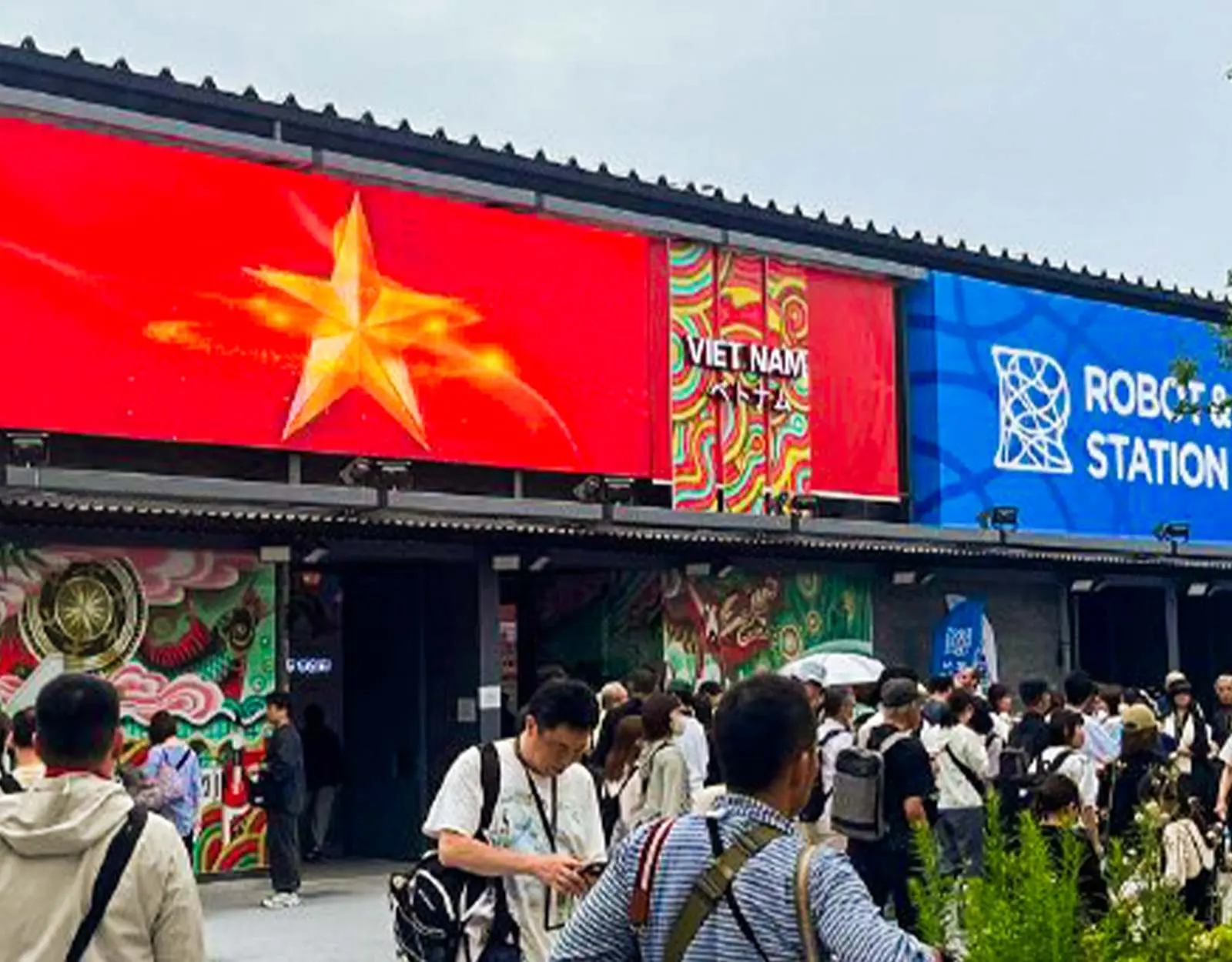
The OCOP Program
A standout feature of the Vietnam pavilion is its exhibit on the “One Commune, One Product” (OCOP) program, an initiative launched by the Vietnamese government in 2018. Inspired by Japan’s “One Village, One Product” (OVOP) model and similar global frameworks, OCOP highlights Vietnam’s commitment to empowering local communities through inclusive, product-driven development.
According to the Food and Agriculture Organization of the United Nations (FAO), OCOP zeroes in on local specialized products, specifically from the villages and communes. OCOP integrates different players of the economy, such as the government, the private sector, and farmers, and gives rural products better opportunities for market access, quality control, and brand development.
As the Vietnam pavilion at the Expo puts it, the program is “a driving force of rural economic development, symbolizing the creativity, identity, and resilience of the Vietnamese people.”
Displayed at the pavilion are examples of OCOP products, including silk from the Van Phuc village in Hanoi, Buon Ma Thuot coffee from Dak Lak province, and Soc Trang province’s ST25 rice, which has been honored as “the world’s best rice,” according to the exhibit.
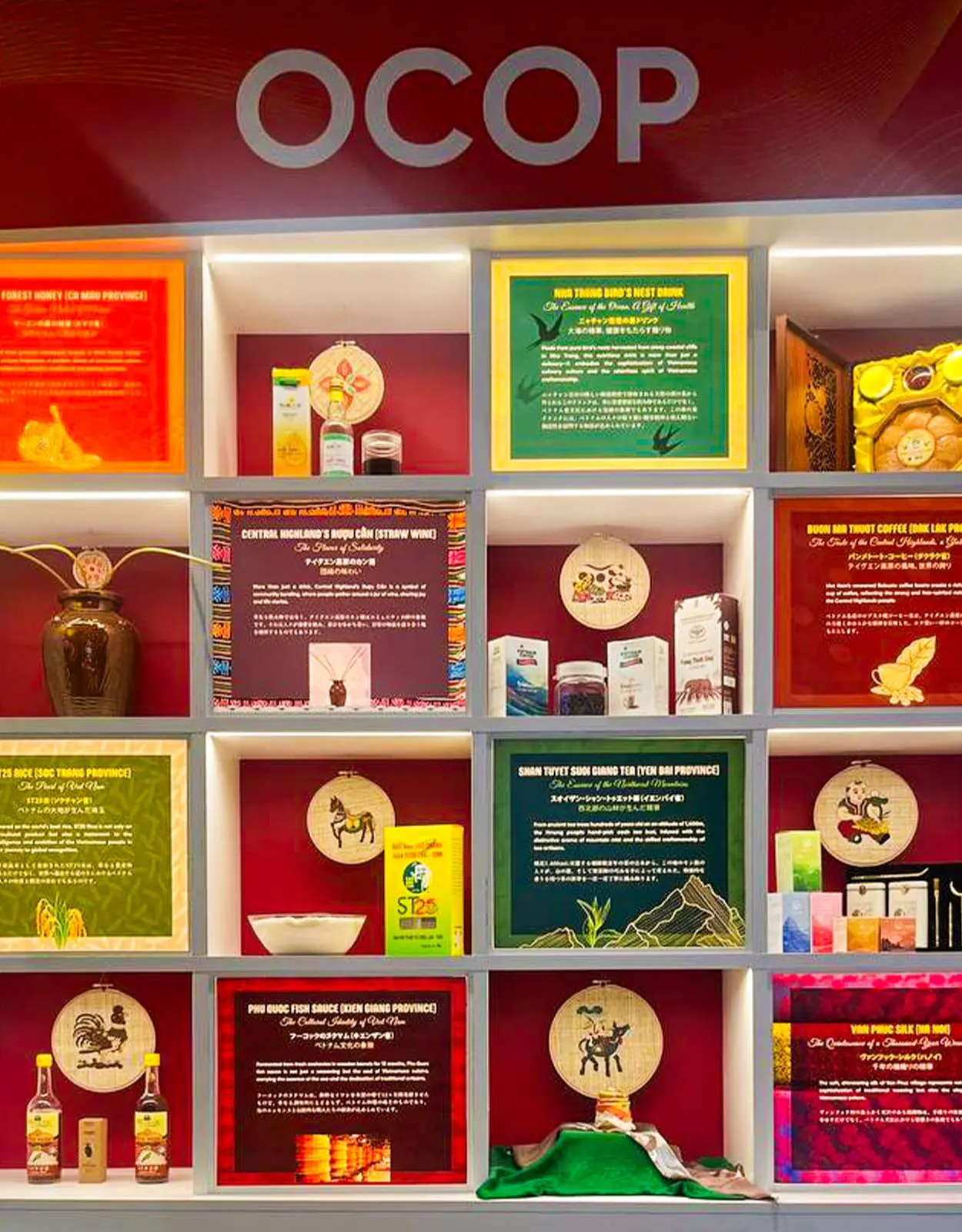
Vietnam Takes OCOP Global
Vietnam’s showcase of its “One Commune One Product ” (OCOP) program and its diverse offerings marks a strategic step toward elevating the initiative on the global stage. The program was also a focal point at an inter-regional forum, which convened agriculture ministers and senior officials from developing nations across Asia and Africa to foster dialogue and collaboration.
During the forum, Vietnam highlighted its success in implementing the OCOP program, sharing best practices that strengthened global cooperation in rural and agricultural development
“Vietnam is emerging as a knowledge hub for rural development based on indigenous values and global connectivity,” FAO Deputy Director-General Beth Bechdol said during the forum. “Vietnam’s practical success in brand-building, quality control, and developing unique rural products is a testament to its ability to transform small-scale production into sustainable value chains.”
The Philippines’ OTOP program
What many may not know is that the Philippines already has a similar program called “One Town, One Product,” (OTOP) whose goal is to also drive local economic growth. It likewise takes inspiration from Japan’s OVOP and has been in existence since 2002.
According to the Department of Trade and Industry (DTI), the Philippines’ OTOP program is geared towards micro, small, and medium enterprises (MSMEs) from towns and cities. They are encouraged to develop distinct products rooted in their respective towns’ or cities’ culture and heritage.
In an effort to boost OTOP Philippines, the DTI announced that Go Lokal!, another program geared towards locally made products, will be integrated into the OTOP Philippines program. Because of this, the existing Go Lokal! stores will be converted to OTOP Philippines stores, ensuring the visibility of the program to the public.
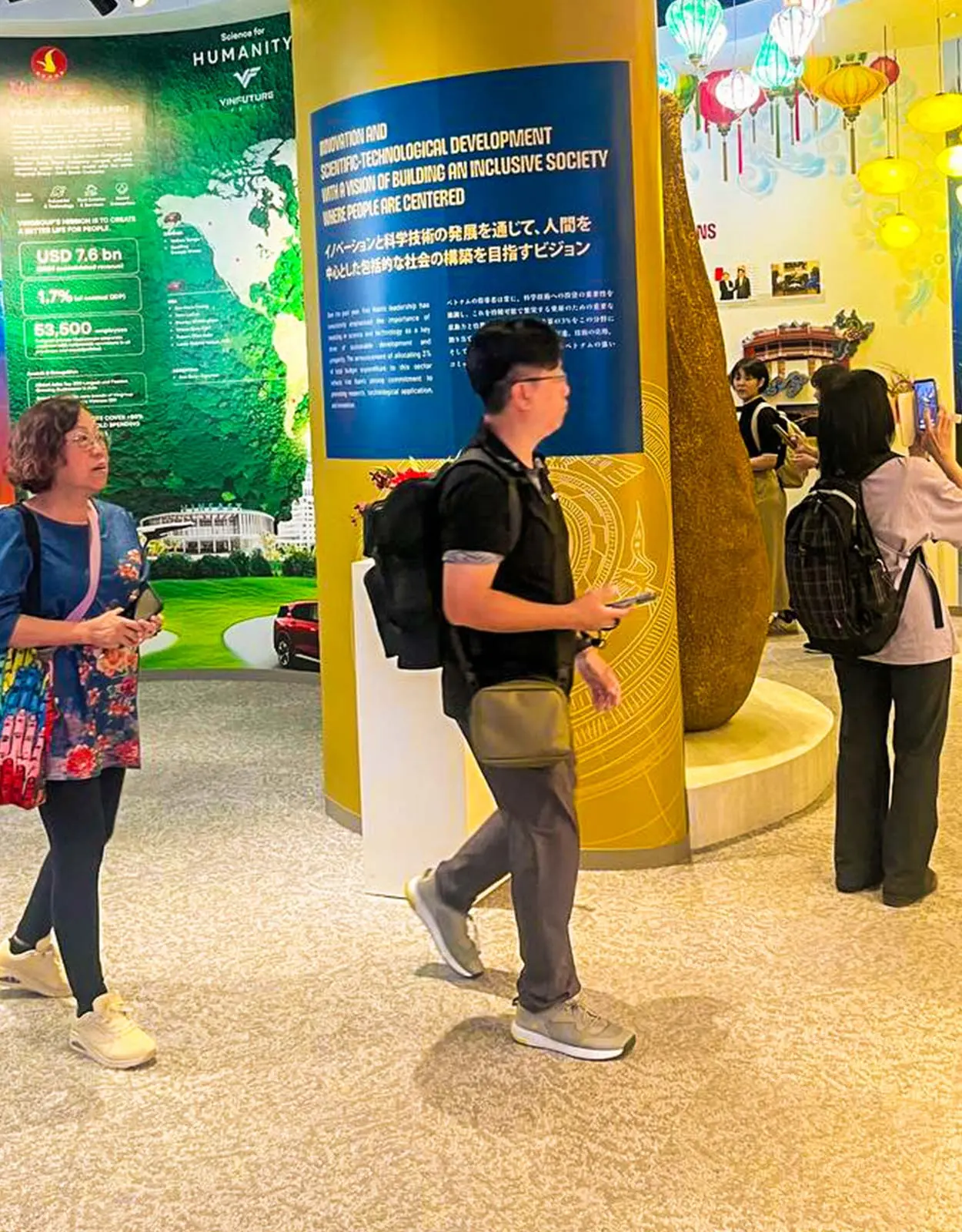
Taking OTOP Philippines to the International Stage
The OCOP exhibit at the Vietnam Expo 2025 pavilion affirms the program’s relevance at a global level. By dedicating a space to highlight its initiatives, Vietnam effectively showcases the OCOP program’s impact while introducing visitors to high-quality local products that merit both international attention and recognition.
Beyond showcasing products on a global platform, Vietnam goes deeper by sharing its experiences to other countries and explaining how and why such a program is beneficial to all stakeholders. Vietnam has also made an effort to foster cooperation among different countries to strengthen rural and agricultural development in other parts of the world.
This is something that the Philippines can emulate with its existing OTOP program. There is no shortage of rural products from the hundreds of towns that call the Philippines home. While these products have been showcased in different trade shows and expos, the OTOP Philippines program can be deepened and developed to go beyond that.
The government, private sector, and key stakeholders have a strategic opportunity to elevate the OTOP Philippines program and embed it into the consciousness or nore Filipinos. Nationwide awareness and education are key to gaining broader support for the program and driving the growth and scalability of rural businesses.
Ideally, the OTOP Philippines program should be promoted on the global stage with the same vigor as the country’s tourism campaigns. By actively creating avenues to showcase proudly Filipino products, the Philippines can unlock trade opportunities that empower MSMEs to enter and compete in international markets.
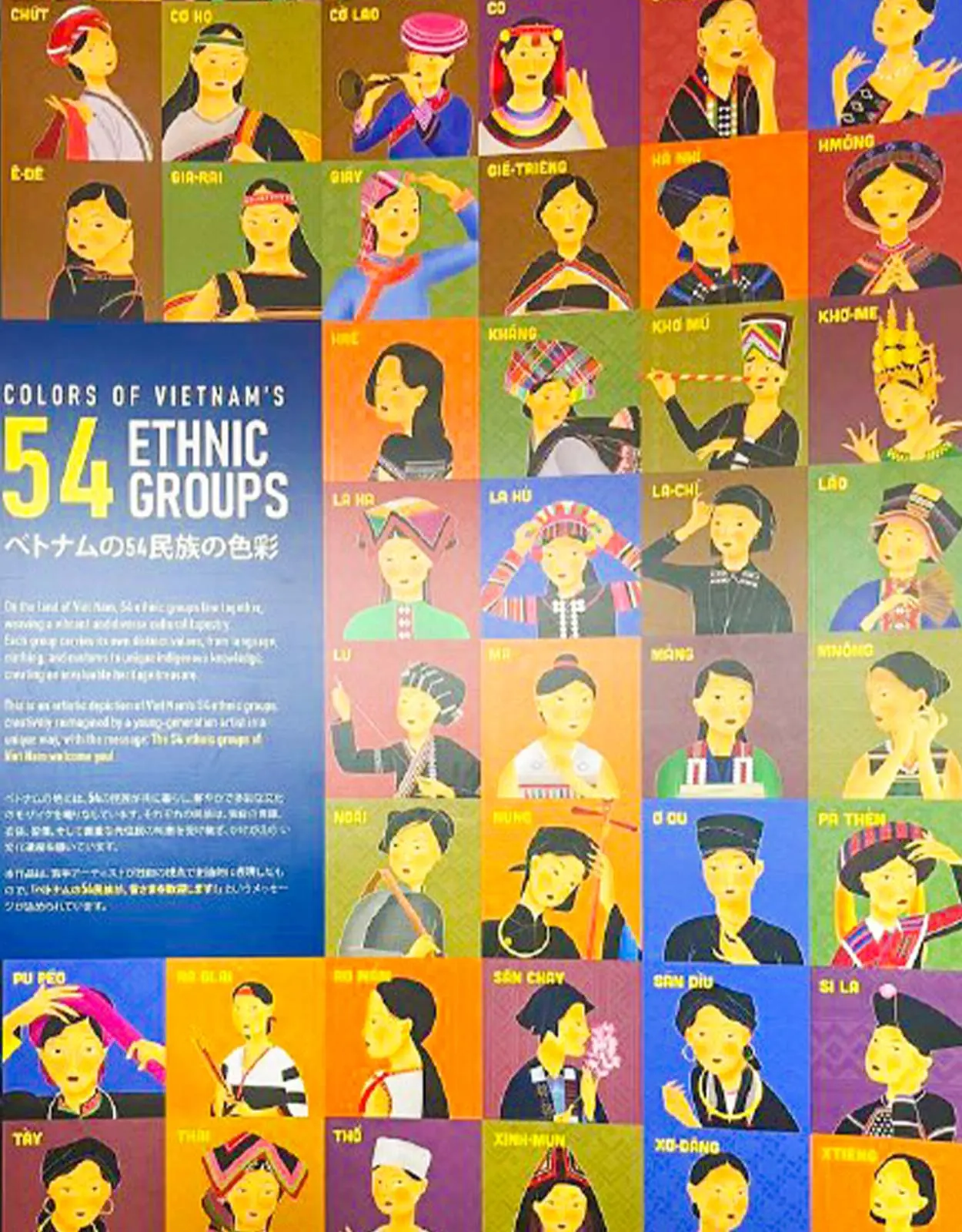
Sharing the Filipino Story to the World
More than two decades since its inception, the OTOP program has provided the Philippines with valuable insights and best practices that can be shared with other nations. As an archipelagic country with diverse provinces and regions, the Philippines faces distinct challenges in developing and commercializing local products, offering a unique perspective on inclusive, place-based economic growth.
Like Vietnam, the Philippines has the opportunity to position itself as a key contributor to global dialogue and cooperation on rural and agricultural development. By sharing its success stories and on-the-ground experiences, the country can help accelerate the growth of its own rural economies and MSMEs as well as support the advancement of similar sectors in other developing nation
In a world full of economic instability and uncertainty, this can help foster a global community that recognizes the value of rural communities and empowers even the smallest of enterprises to thrive.



